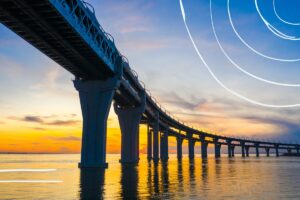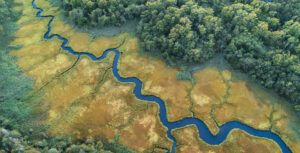- SIWI – Leading expert in water governance
- /
- Latest
- /
- Bridging borders through source-to-sea management
Bridging borders through source-to-sea management
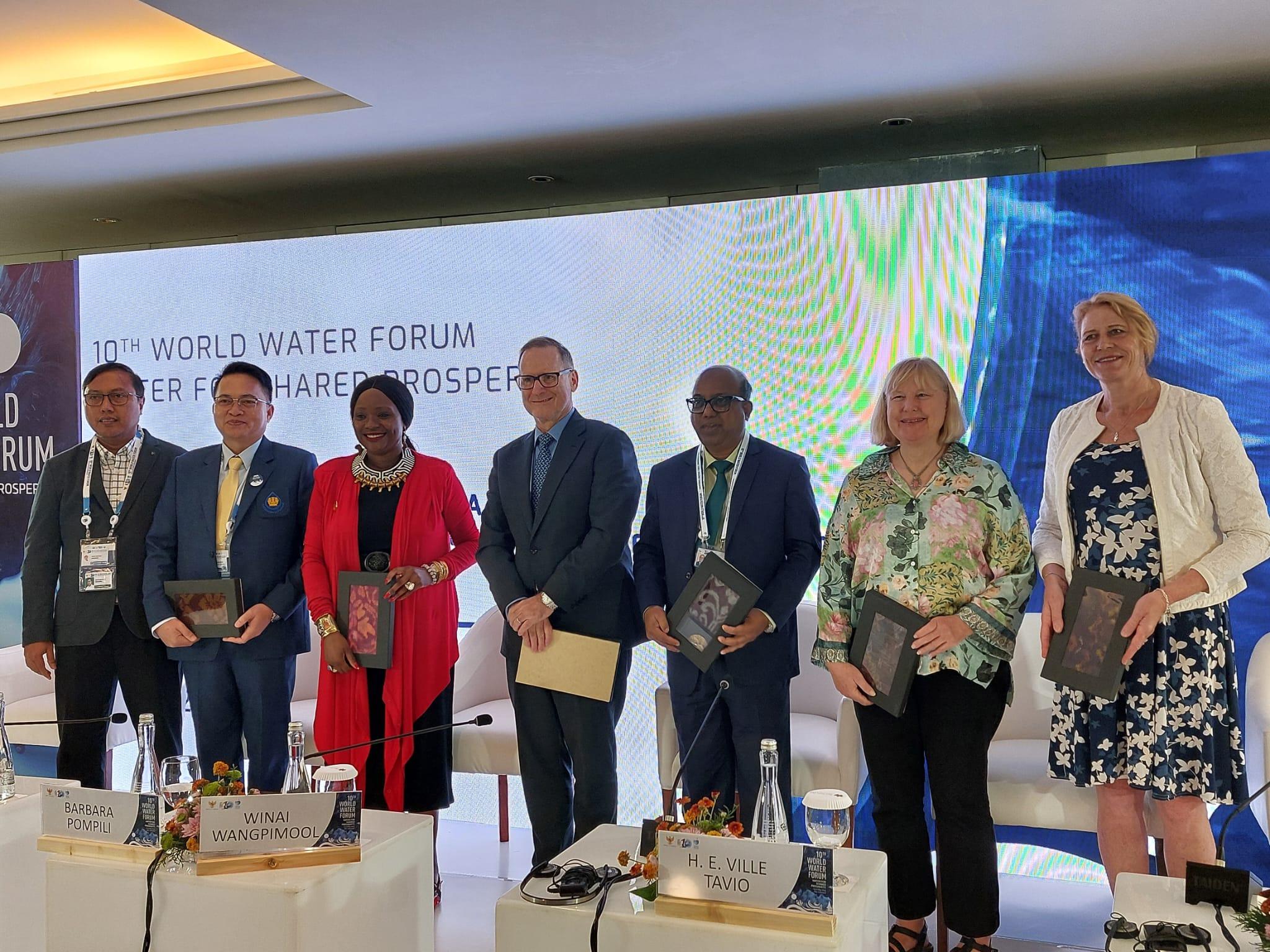
We met with Ruth Mathews, Senior Manager and Coordinator for the Action Platform for Source-to-Sea Management (S2S Platform) at SIWI. She explains how the innovative source-to-sea management approach bridges borders— aligning perfectly with the theme of World Water Week 2024.
Since its inception in 2014, the S2S Platform has been successful in attracting high profile supporters, including the International Union for Conservation of Nature (IUCN), United Nations Environment Programme (UNEP), Intergovernmental Oceanographic Commission of UNESCO (IOC/UNESCO) and Global Environment Facility (GEF). The Platform is continuously growing, because partners see the value of this holistic approach that ‘bridges borders’ across geographies, sectors, people, and topics.
Mending fragmented systems
Within the field of systems thinking, it is well established that the way we govern land, freshwater, coastal and marine ecosystems – and socio-economic activities – is “very much broken into pieces,” according to Mathews. Governance of these interconnected and interdependent systems is often location or sector specific, as opposed to a broader focus on the whole.
When sectors or locations operate independently without considering how they affect each other, sustainable development across regions becomes less successful, as different activities may start competing with one another or have unintended consequences elsewhere. “This is the message we are trying to convey – a lot of the problems we face today with excessive pollution, biodiversity loss, and the inability to achieve the SDGs, is because we fall short of sufficient progress that arises from fragmentation,” continues Mathews.
Source-to-sea management provides a real opportunity to identify activities, investments, or development processes across the entire source-to-sea continuum where “we can lift everybody up together.”
A concrete example of co-benefits of source-to-sea management
Just as the water cycle connects land and sea, different ecosystems are connected by flows of sediments and pollutants. These flows are affected by for example water abstraction, dikes and levees, and the draining of wetlands. Any such impact affects the provision of ecosystem services, or benefits provided to people by these ecosystems.
“Ecosystem services are provided by nature inherently, which humans often hinder [either intentionally or unintentionally],” Mathews explains. “For example, oceans produce oxygen and absorb carbon dioxide thereby reducing greenhouse gasses in the atmosphere. If oceans lose the capacity to do so due to human impacts, we lose those ecosystem services.”
Therefore, if upstream regions are well managed, not only does it positively affect downstream ecosystems, but the benefits can be much wider reaching. The same is true for fisheries in that sustainable management of upstream fisheries is essential for healthy downstream ecosystems. Conversely unhealthy fish populations downstream can impact food availability to other regions, even those upstream.
How source-to-sea management brings people together
One of the distinctive features of source-to-sea management is its ability to generate discussions and common understanding among stakeholders from different sectors.
This inclusive participatory process is designed to ensure that decisions are “actually reflective of the local experience and knowledge,” with stakeholders including Indigenous Peoples, local communities, women, as well as local government, industry, and other relevant groups.
Mathews emphasizes that these challenges “can’t be solved by one individual sector,” highlighting the critical need for a collaborative approach. During workshops, participants from various sectors share their knowledge of the biophysical, socio-economic, and governance systems related to specific flow like a pollutant or sediments. This exchange of insights helps create a shared understanding and allows the group to “identify a future vision that they would like to work towards for their source-to-sea system.”
Thereafter, the group creates a collaborative action plan for everyone to contribute towards reaching that vision.
By recognizing the interdependencies between people, “you really start seeing the glue between actors and how they relate to each other,” according to Mathews.
Contributions to peace and enabling action
“Maintaining ecosystem services is really important in source-to-sea systems,” Mathews explains. “During instances of conflict and migration, for example, people face the loss of being able to engage with fisheries and a potential serious loss of food, or while migrating from rural to urban areas. By identifying ways of maintaining ecosystem services, source-to-sea management builds cooperation among communities.”
“Through the platform we create a community of practice,” continues Mathews. “The S2S Platform is comprised of over fifty organizations that are committed to holistically manage source-to-sea systems.”
This year at World Water Week 2024, to be held online and in Stockholm from August 25-29, the S2S Platform and friends of the Platform have collectively organized a total of nine sessions. All nine sessions are led by partners or affiliates, which will offer a broad programme around source-to-sea management.
Mathews envisions that the growing adoption of source-to-sea systems will shift the focus of future water conferences beyond freshwater alone and move towards a holistic approach. “It’s a real chance to pull in the ocean community and bridge borders.”
Join us at World Water Week 2024
World Water Week 2024 is centred on water cooperation, for peace and security in its broadest sense. SIWI is convening a wide range of sessions and events, bridging borders across sectors, topics and people.
SIWI at World Water Week 2024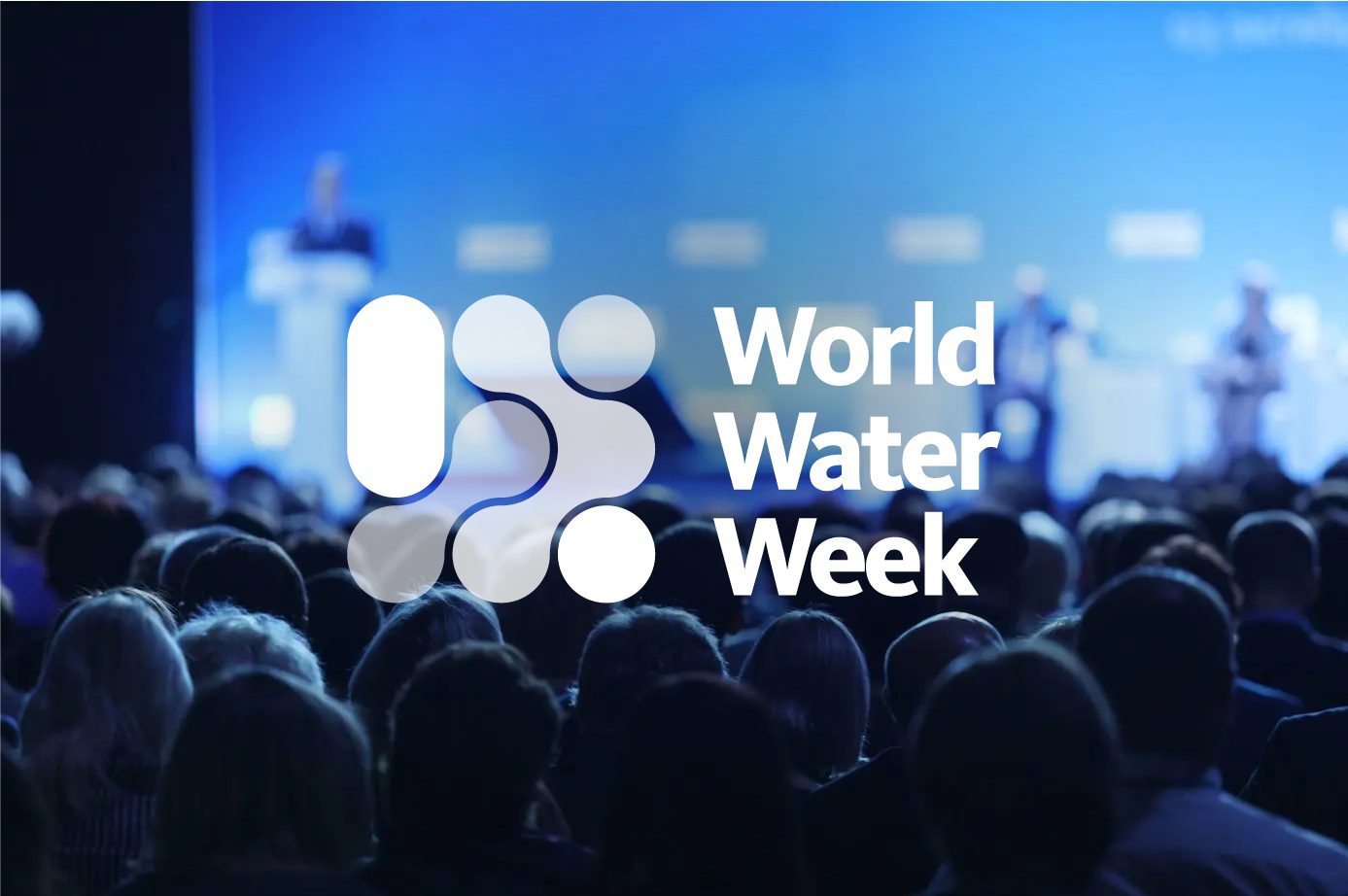
Most recent

SIWI’s endorsement of the COP29 Declaration on Water for Climate Action
- Water and climate
- World Water Week
- Water governance

SIWI-WASH experts join IVL
- Water, Sanitation and Hygiene (WASH)
- Water governance
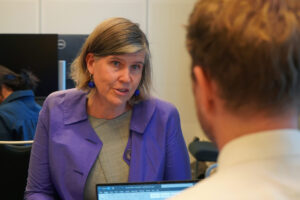
Bridging Borders: A Conversation with Meike van Ginneken
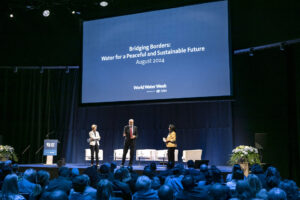
Bridging Borders: A conversation with Jon Lane
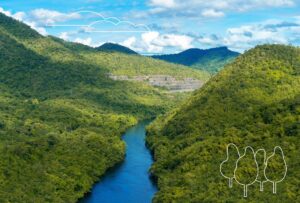
Water in landscapes: Co-creating climate resilience
